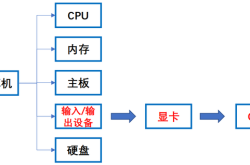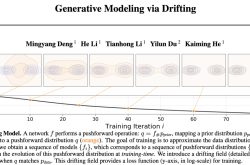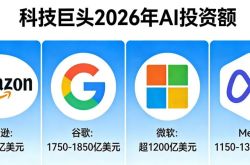Daimler and Toyota Collaborate to Create a New Truck Industry Powerhouse
![]() 06/19 2025
06/19 2025
![]() 737
737
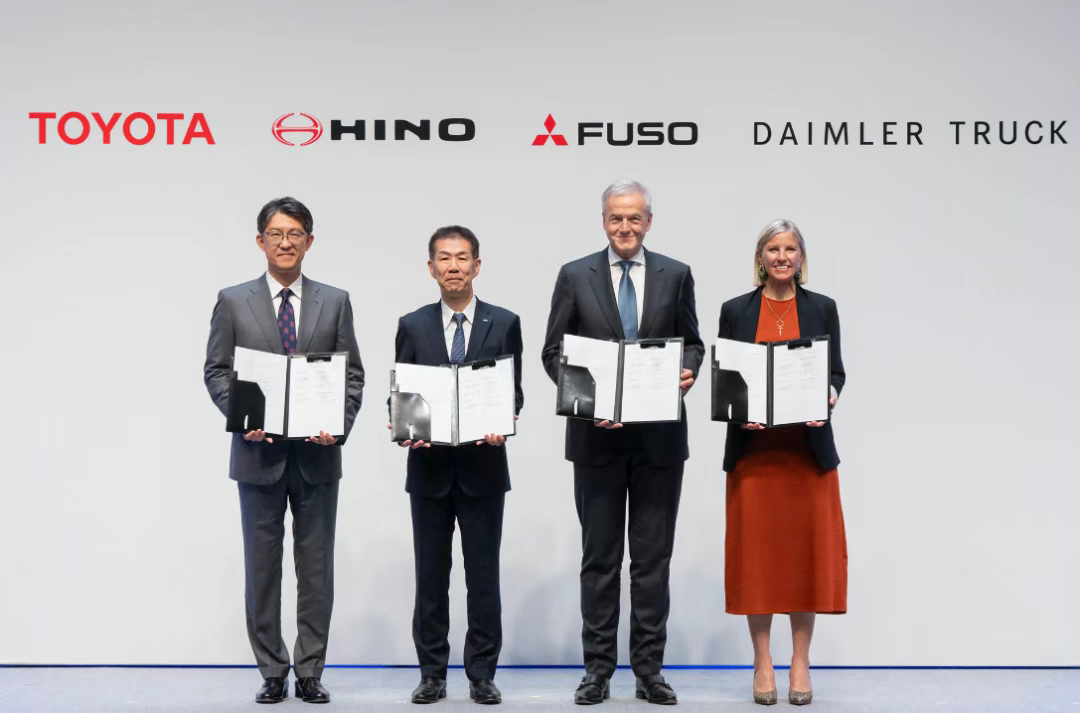
Emergence of a New Giant in Asia's Truck Market
Author|Wang Lei
Editor|Qin Zhangyong
Asia's truck market is set to welcome a formidable new player.
Japanese truck giants Hino Motors and Mitsubishi Fuso Truck & Bus Corporation have officially announced a business integration. Behind these two truck companies stand Toyota Motor and Germany's Daimler Truck, respectively. Both parties have also issued a joint announcement confirming that they have reached a final agreement on the business integration.
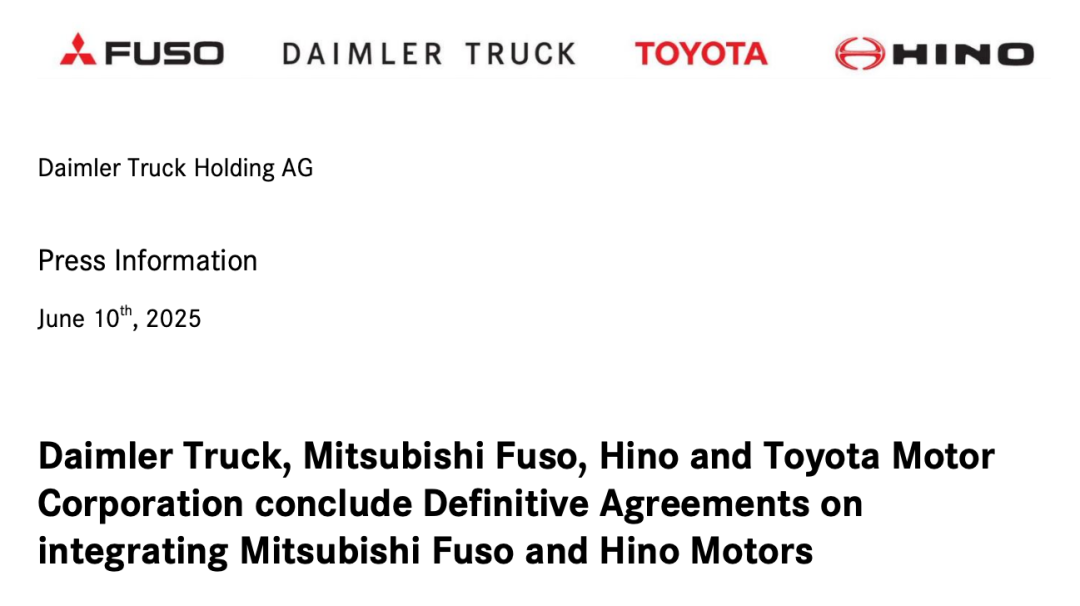
The business integration involves the merger of the two automakers to form a new holding company, with both parties' truck businesses becoming wholly-owned subsidiaries of the newly formed entity. There are also plans for an initial public offering (IPO), aiming to list on the Tokyo Stock Exchange's Prime Market in April 2026 and commence business operations.
This strategy of merging during challenging times is a common tactic employed by Japanese automakers.
It is noteworthy that previously, Akio Toyoda was skeptical about the restructuring efforts of Honda and Nissan, yet now Toyota and Daimler have embarked on a similar path.
01
Toyota's Strategic Motives
According to the announcement, in the newly established company, the parent companies Toyota Motor and Daimler Truck will each contribute 25% of the capital to the holding company, becoming major shareholders. The agreement emphasizes the "equality" of the integration.
The remaining 50% of the shares will be listed on the Tokyo Stock Exchange's main board, but it is currently unclear whether this portion will be open to public investors or if other strategic investors will be introduced. In terms of voting rights, Daimler Truck will hold 26.7%, while Toyota's voting rights are capped at 19.9%, below 20%.
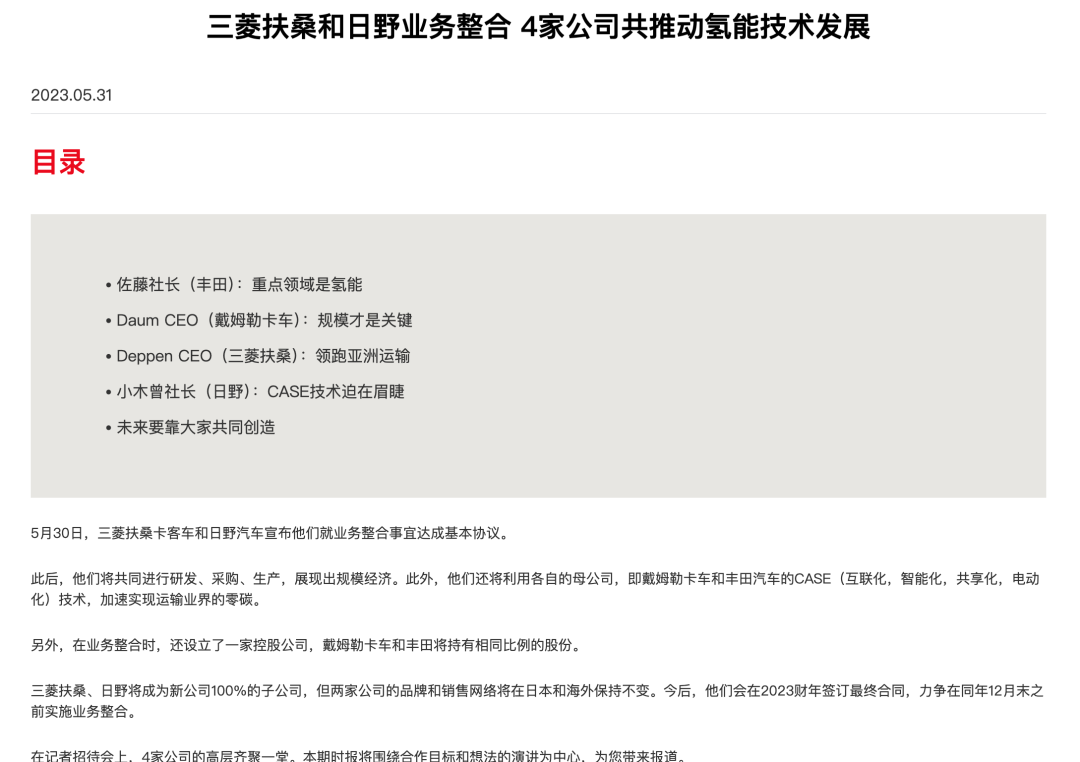
Following the integration of Hino and Mitsubishi Fuso, with an annual sales volume of approximately 230,000 units, the new company is poised to become one of Asia's largest truck manufacturers, accounting for about 10% of the global market share, and directly competing with companies like Isuzu and Volvo Trucks.
The yet-to-be-named new holding company will be headquartered in Tokyo and is expected to employ over 40,000 people, holding 100% shares in both Mitsubishi Fuso and Hino Motors. However, the brands and sales networks of the two companies will remain unchanged.
The new company's Chief Executive Officer (CEO) will be Karl Deppen, the current president of Mitsubishi Fuso, who has a long history of serving as a senior executive at Daimler.
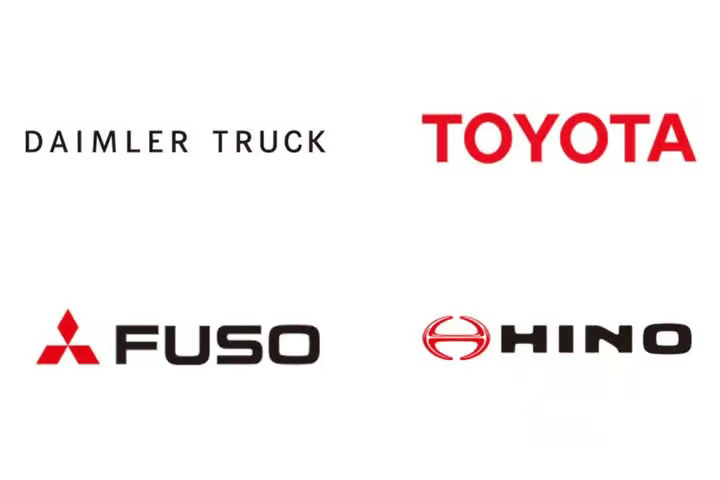
While the agreement emphasizes equity equality, it is evident that Daimler Truck will have a greater say in the newly established company.
Moreover, at a press conference, the current president of Toyota, Koji Sato, addressed the fact that Hino Motors will no longer be a subsidiary of Toyota after the business integration, stating, "The crucial point we need to reflect on is that, at heart, we are a passenger car manufacturer. In the commercial vehicle sector, as the parent company, we have failed to establish the necessary leadership, which is undeniably the case."
He further added, "It is challenging to fully leverage (Toyota's) technological expertise, and I believe there are limitations in supporting Hino Motors."
Toyota's press release emphasizes CASE technologies, including connected vehicles, autonomous driving, sharing, and electrification. According to Toyota, any of these technologies alone is extremely "costly," and the traditional "go-it-alone" approach is no longer viable to meet the demands of the future industry. The new joint venture will accelerate the development and application of new technologies with the technical support of Daimler Truck and Toyota.
It is worth mentioning that on the same day, Hino Motors also announced its plan to transfer its Hamamura Plant, which produces trucks, to Toyota. A new company will be established to oversee the plant, retaining about 4,500 employees. The new company's president will be Atsushi Aoki, who has a background in Toyota. The transfer price is expected to be 150 billion yen, aiming to improve financial conditions.
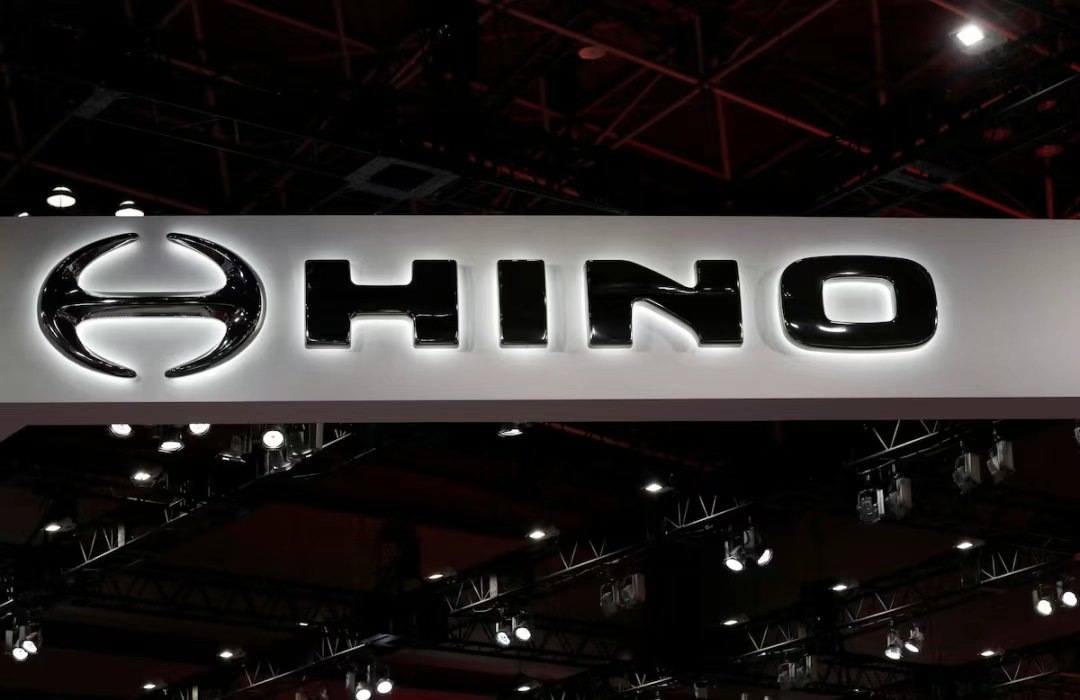
To release the loans from Toyota, a third-party private placement with Toyota as the subscriber will be implemented prior to the integration. Currently, Hino Motors has obtained a loan of 250 billion yen from Toyota, and this private placement will raise 200 billion yen, with a portion of it used to repay the loan.
This move suggests that Toyota intends to "cut its losses in a timely manner" regarding Hino Motors, which recorded a net loss of 217.753 billion yen (approximately $1.5 billion) for the fiscal year ending in March this year.
In fact, this integration was originally scheduled to be completed in 2024. Negotiations for the integration of Hino and Mitsubishi Fuso reached a basic agreement in May 2023, with the original plan to sign the final agreement in February 2024.
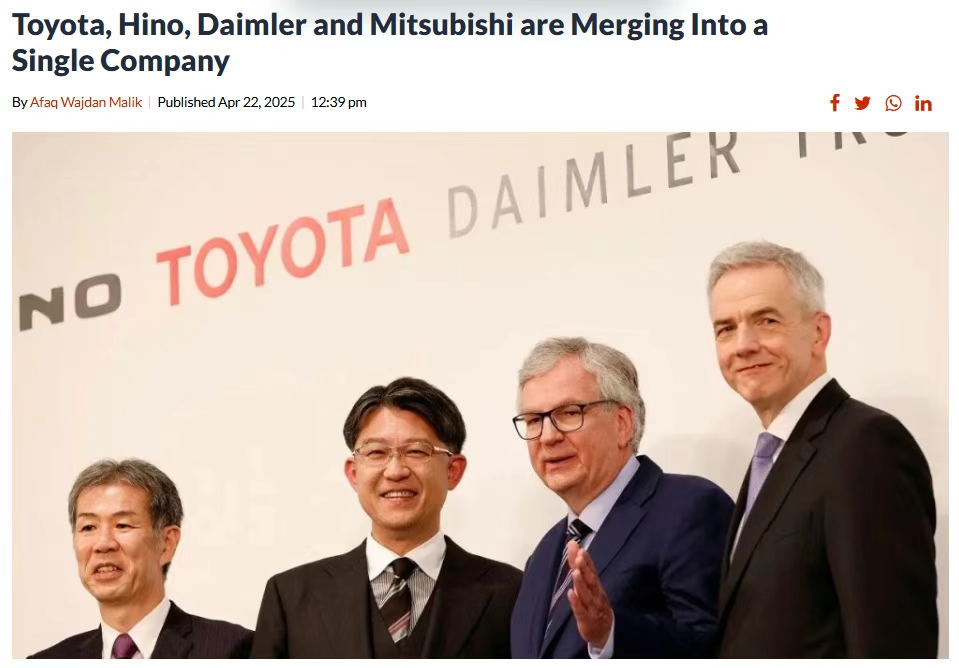
However, due to the engine certification violation scandal involving Hino Motors revealed in 2022, the integrated company would occupy a significant market share post-merger, requiring approval from competition regulators. The approval process by antitrust regulators took time. Affected by this incident, the integration of both parties was repeatedly delayed in February 2024.
In January this year, after reaching a settlement with US authorities regarding the engine certification falsification issue, a turnaround occurred, and both parties restarted integration negotiations, continuing to progress on the path of business integration.
02
Foray into Hydrogen Energy
According to the announcement, this collaboration aims to integrate resources and enhance competitiveness in the global commercial vehicle market. In reality, the underlying pressure stems from increasingly stringent emission standards, the high cost of electrification, and the rapid rise of Chinese trucks in emerging markets.
Both Hino and Mitsubishi Fuso are reputable names in the commercial vehicle industry.
Mitsubishi Fuso has been manufacturing large vehicles since 1932, originating from Mitsubishi Heavy Industries' predecessor, Mitsubishi Shipbuilding Co., Ltd. Later, in 2003, Mitsubishi Fuso was officially spun off from Mitsubishi Motors. In 2005, Daimler Group acquired a 43% stake, which was increased to 89% in 2011, making Mitsubishi Fuso a subsidiary of Daimler. After Daimler Truck became independent in 2019, Mitsubishi Fuso remained its subsidiary, with its business focus shifting to European and Australian markets.
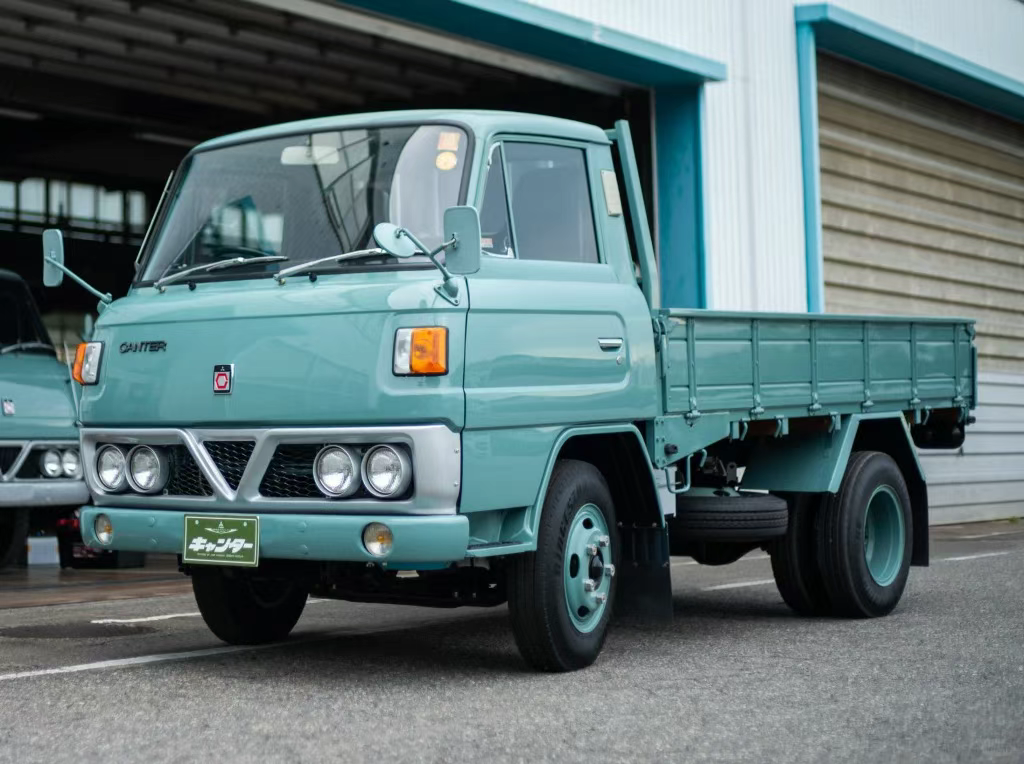
Hino Motors has always been the flagship truck brand under the Toyota umbrella. Toyota established a business partnership with Hino in 1966 and made it a subsidiary in 2001. In its early days, Hino also had close ties with Isuzu, another major truck giant in Japan. Before 1942, both were part of the same company. In 1942, Hino separated from Isuzu's special vehicle manufacturing department to become Hino Heavy Industries.
In the Japanese domestic market for medium and heavy trucks, Hino was the leader until it was overtaken by Isuzu following the emissions scandal in 2022.
After the emissions issue was exposed in 2022, Hino was expelled from the Japanese Commercial Vehicle Consortium (CJPT) led by Toyota, which now takes the form of an investment by Toyota, Isuzu, Daihatsu, and Suzuki.
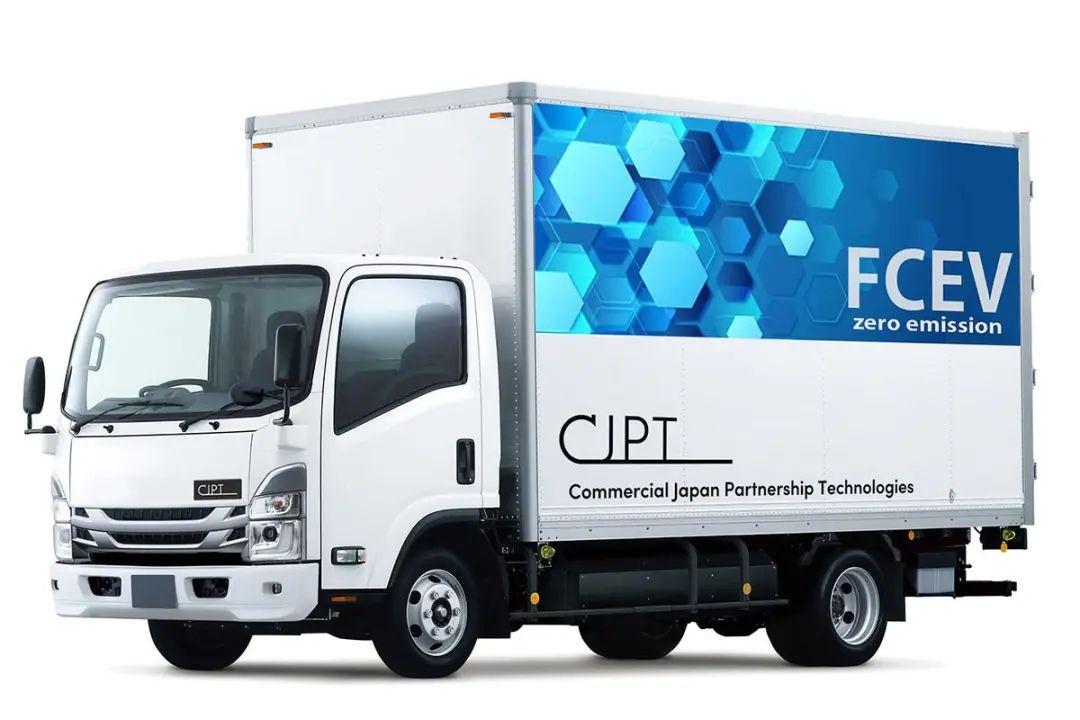
For Hino, it is impractical to conduct research on technologies such as electric powertrains and zero emissions alone. If it cannot regain its place in CJPT, collaboration with other companies becomes necessary. Coupled with the substantial financial penalties it has incurred, Toyota's intention to find an ally is evident.
Thus, Daimler Truck, which also favors hydrogen fuel cell trucks, entered Toyota's radar.
Daimler Truck's first-quarter 2025 financial report revealed a 20% drop in profit margins for its European operations, primarily due to the high proportion of traditional diesel models. Although Daimler Truck is also advancing the development of FCV trucks powered by liquefied hydrogen, progress has been unsatisfactory.
Therefore, Daimler Truck's desire to explore emerging alternative energy sources has intensified, while Toyota is promoting the creation of a consortium to popularize hydrogen energy.
It is likely that both parties hit it off immediately due to this shared vision.
Moreover, according to the announcement, both parties will integrate Toyota's hydrogen energy technology reserves with Daimler's electrification experience to jointly develop a new generation of electric trucks and hydrogen fuel cell models, aiming to launch multiple zero-emission commercial vehicles by 2030.
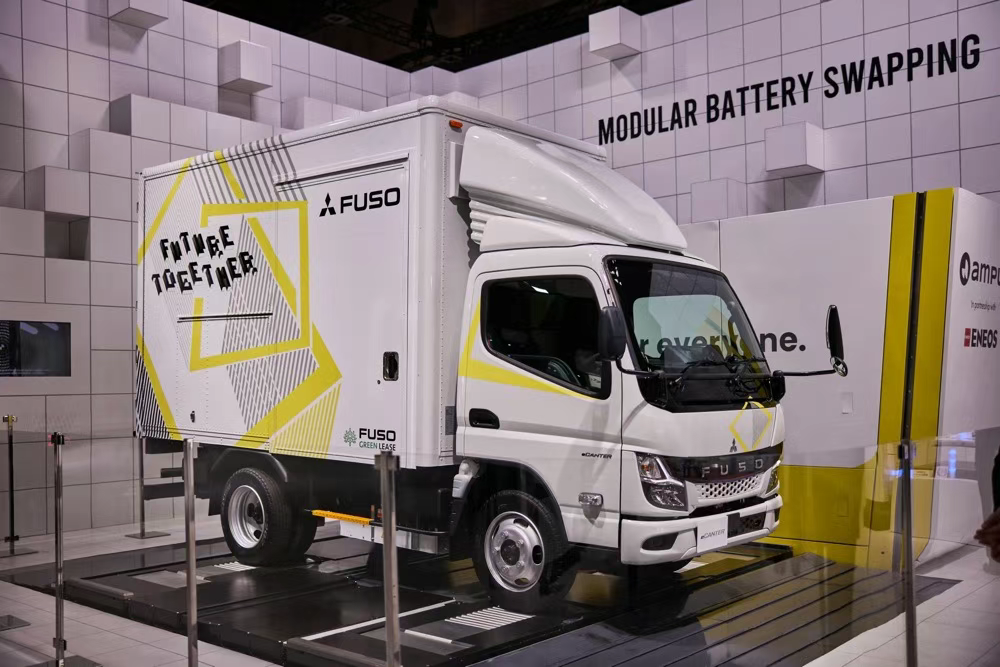
A Toyota executive said when discussing the integration of Hino Motors: "The framework established by the four companies has the potential to become a breakthrough for Toyota in the fields of trucks and hydrogen energy, something that Toyota alone cannot achieve."
More importantly, Chinese commercial vehicles are catching up vigorously overseas. This year, China's commercial vehicle export growth has achieved double-digit year-on-year growth. According to data from the China Association of Automobile Manufacturers, China exported 242,000 commercial vehicles in the first quarter, a year-on-year increase of 13.1%.
In contrast, Japanese heavy trucks are beginning to decline due to increasingly stringent emission standards, especially in Southeast Asia, their primary market. Domestically, both Mitsubishi Fuso and Hino have already weakened their presence in China.
In 2024, GAC directly acquired the equity of Hino in GAC Hino, and at this year's Shanghai Auto Show, GAC Hino was officially renamed GAC Lingcheng, marking that the field of new energy heavy trucks no longer requires the support of joint ventures.
Faced with the intense pursuit of Chinese trucks in electrification, these traditional giants apparently aim to leverage hydrogen fuel to regain ground in the new energy sector.

